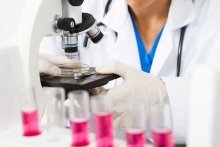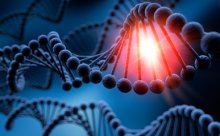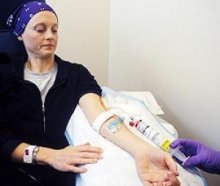
Recent research has found that changing to a low-fat diet may have a positive influence on breast cancer outcomes.
A study led by Dr Rowan T Chlebowski, PhD of the City of Hope National Medical Center in California found that, in a randomized clinical trial, a low-fat eating pattern was associated with lower risk of death after breast cancer.

In the most comprehensive study ever looking at the genetics of breast cancer, scientists have linked 110 genes to an increased risk of the disease.
The Institute of Cancer Research study used a pioneering genetic technique to analyse 63 areas of the genome that had previously been associated with the risk of breast cancer.

New research from the UK shows how alcohol damages DNA in stem cells and helps to explain why drinking can increase your risk of cancer.
The study, by scientists at the MRC Laboratory of Molecular Biology in Cambridge has been published in the journal Nature, and used mice to show how alcohol exposure leads to permanent genetic damage.

Researchers in the US have identified two new genes associated with breast cancer: MSH6 and PMS2.
The new study suggests that each gene approximately doubles a woman’s risk of developing breast cancer by age 60. The two genes were previously known to cause Lynch syndrome, an inherited condition that raises the risk of colorectal, ovarian, stomach, and endometrial cancer.

A new study has found that acupuncture significantly reduces joint pain for post-menopausal women with early-stage breast cancer taking aromatase inhibitors.
The research, presented at the San Antonio Breast Cancer Symposium, involved a randomised controlled trial comparing acupuncture, sham acupuncture and no acupuncture.

A combination of the breakthrough drug Keytruda and Herceptin is well tolerated and has clinical benefits for patients with Herceptin-resistant HER2-positive breast cancer.
The new treatment regimen was tested in a clinical trial on patients with advanced HER2-positive breast cancer that had continued to grow on Herceptin (trastuzumab) therapies.

Increasing the dose intensity of chemotherapy by shortening the time period between treatments may help to reduce the risk of breast cancer recurring, a new study shows.
The research, presented at the San Antonio Breast Cancer Symposium, also noted that delivering drugs sequentially rather than at the same time helped to reduce the risk of recurrence and death.

Bariatric surgery (reducing the size of the stomach) for severely obese women could lower their breast cancer risk by more than a third, according to a new study.
The research from University of Cincinnati College of Medicine has been published in the journal the Annals of Surgery and reviewed the medical data of more than 100,000 people in the United States.
Lead researcher, Dr Daniel Schauer, says the results were surprising.

Researchers have discovered that women with breast cancer have far less of a particular bacterial species in their breast tissue than healthy women.
The new study, published in the journal Oncotarget, found that breast tissue in women with breast cancer contained far less Methylobacterium.

Ten-year results from a major breast cancer clinical trial suggest that routinely removing the axillary lymph nodes during lumpectomy to remove early-stage breast cancer may not be necessary.
The study was published in the journal JAMA and examined nearly 900 women diagnosed with early-stage breast cancer to find out if axillary node dissection lead to better long-term outcomes.



